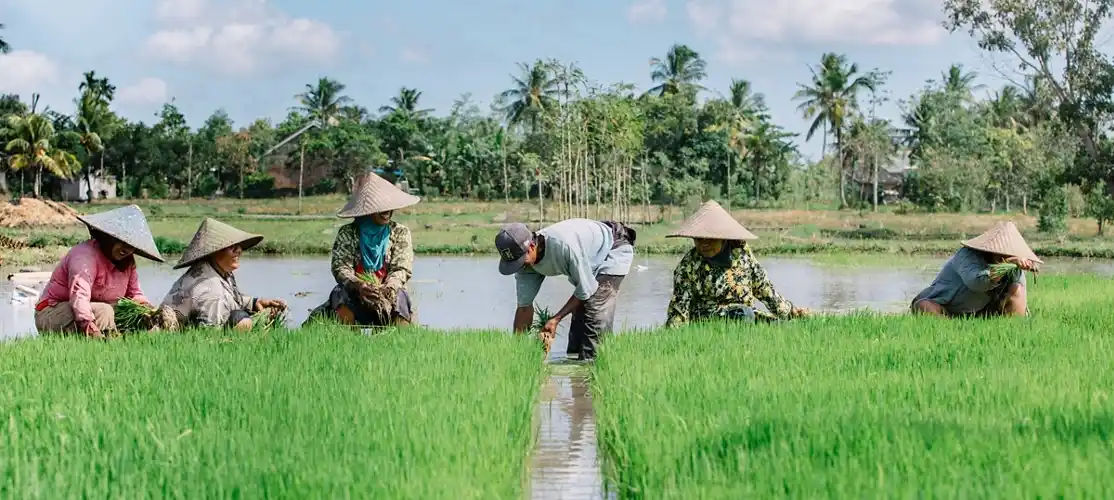Jakarta – Indonesia, Southeast Asia’s largest economy, is navigating a complex landscape of economic downturns and environmental policy shifts. A recent dip in coal exports, driven by weak global demand and pricing disputes, has raised concerns about the nation’s trade balance, while a forthcoming ban on small bottled water production in Bali signals a broader push for sustainability. At the same time, progress in reducing child stunting offers a glimmer of hope amid persistent underlying risks. These intertwined challenges highlight the delicate balance Indonesia must strike between economic stability and environmental responsibility.
Coal Export Decline Signals Economic Strain
Indonesia, the world’s largest exporter of thermal coal, is facing a significant setback as export volumes drop amid softening global demand and unresolved price disputes. Industry reports indicate that shipments have declined in recent months, particularly to key markets like China and India, where economic slowdowns and a pivot to renewable energy are curbing coal consumption. The situation is compounded by disagreements over pricing benchmarks between Indonesian exporters and international buyers, with some contracts stalled as negotiations drag on.
The economic implications are stark. Coal accounts for a substantial share of Indonesia’s export revenue, and a prolonged decline could widen the trade deficit and pressure the rupiah, which has already faced volatility in recent years. Analysts estimate that a sustained drop in coal exports could shave off critical percentage points from GDP growth, a worrying prospect for a nation aiming to maintain its upward economic trajectory. “The coal sector is a backbone of our economy, but global shifts are forcing us to rethink reliance on it” said an official from the Ministry of Energy and Mineral Resources during a recent press briefing in Jakarta.
Beyond immediate fiscal concerns, the decline raises questions about job security in coal-dependent regions like Kalimantan, where mining communities already grapple with limited economic diversification. The government has pledged to accelerate investments in renewable energy and downstream processing of raw materials, but progress remains uneven. For now, as one industry insider noted, “We’re caught between falling demand and the slow pace of transition.”
The broader context of global energy markets adds another layer of complexity. With major economies committing to net-zero targets, Indonesia faces the dual challenge of adapting to reduced coal demand while ensuring energy security at home. The government’s ambition to boost domestic coal consumption for power generation has sparked debate, with environmentalists warning of increased carbon emissions at a time when climate commitments are under scrutiny.
Bali’s Bottled Water Ban: A Step Toward Sustainability
In a separate but equally significant development, Bali is set to implement a ban on the production of bottled water in containers under one liter, a move aimed at curbing plastic waste on the tourist-heavy island. Local authorities argue that small plastic bottles contribute disproportionately to the island’s waste crisis, with millions of discarded containers clogging landfills and polluting beaches each year. The regulation, expected to take effect in the coming months, will push producers to shift to larger containers or alternative packaging solutions.
The ban reflects Bali’s broader environmental agenda, which includes efforts to reduce single-use plastics and protect the island’s natural beauty—a key draw for its tourism-driven economy. “We want to preserve Bali for future generations, and that starts with tackling plastic pollution” said a provincial spokesperson during a recent announcement. The policy has garnered support from environmental groups, who see it as a model for other regions in Indonesia grappling with similar challenges.
However, the measure has sparked pushback from small-scale producers and vendors who rely on affordable, small-sized bottles to cater to tourists and low-income consumers. Critics argue that the ban could raise costs and limit access to clean drinking water, particularly in areas where tap water remains unreliable. The government has promised support for affected businesses, including subsidies for transitioning to eco-friendly alternatives, but details remain sparse. For now, the policy underscores the tension between environmental goals and economic realities—a recurring theme in Indonesia’s development narrative.
Tourism operators, meanwhile, are cautiously optimistic. Bali welcomes millions of visitors annually, and maintaining its reputation as a pristine destination is critical. Yet, as one hotelier in Kuta noted, “Sustainability is vital, but we need practical solutions that don’t alienate visitors or burden small businesses.” The ban’s success will likely hinge on effective enforcement and public education campaigns to encourage reusable bottles and refill stations.
Stunting Reduction Offers Hope Amid Persistent Risks
Amid these economic and environmental challenges, Indonesia has made notable strides in addressing child stunting—a chronic issue linked to malnutrition and poverty. Recent data shows a decline in stunting rates, with targeted government programs and improved access to nutrition playing a key role. Initiatives like fortified food distribution and maternal health education have yielded results, particularly in rural areas where stunting has historically been most prevalent.
President Joko Widodo’s administration has prioritized the issue, framing it as a cornerstone of human capital development. The goal is to reduce stunting to 14% by 2024, down from over 30% a decade ago. “Investing in our children’s health is investing in Indonesia’s future” Widodo emphasized during a recent national address. Current figures suggest the country is on track, with some provinces reporting significant improvements.
Yet, experts caution that underlying risks remain. Economic disparities, exacerbated by crises like the coal export dip, threaten to undo progress if families struggle to afford nutritious food. Additionally, disruptions in healthcare access—particularly in remote regions—could hinder sustained gains. Natural disasters, a frequent occurrence in Indonesia, further complicate efforts by displacing communities and disrupting supply chains. As one nutrition specialist put it, “We’ve made strides, but the foundation is fragile.”
The intersection of stunting with broader economic challenges is particularly concerning. With potential budget constraints looming due to falling export revenues, social programs may face funding cuts. Advocates are urging the government to protect health and nutrition budgets, arguing that short-term savings could lead to long-term costs in productivity and development. The debate reflects a broader struggle to balance immediate economic pressures with long-term societal goals.
Navigating a Path Forward
Indonesia’s current challenges—falling coal exports, environmental reforms in Bali, and the ongoing fight against stunting—paint a picture of a nation at a crossroads. Economic stability remains elusive as global market dynamics shift, forcing a reevaluation of traditional revenue streams. At the same time, environmental policies signal a commitment to sustainability, though their implementation must navigate local resistance and economic trade-offs. Progress on social issues like stunting offers a counterpoint, yet it too is vulnerable to broader systemic pressures.
For policymakers, the task is daunting but not insurmountable. Diversifying the economy beyond coal, through investments in renewables and manufacturing, could mitigate export losses while aligning with global climate goals. Supporting small businesses affected by environmental regulations, such as Bali’s bottled water ban, will be crucial to maintaining public buy-in. Meanwhile, safeguarding social programs amid fiscal uncertainty remains a priority to ensure that gains in health and nutrition are not reversed.
As Indonesia charts its course, the interplay of these issues will shape its trajectory in the years ahead. Will economic diversification keep pace with declining traditional industries? Can environmental reforms balance sustainability with livelihoods? And will social progress withstand the pressures of economic hardship? These questions linger as the nation seeks to reconcile its ambitions with its challenges, striving for a future that is both prosperous and sustainable.















